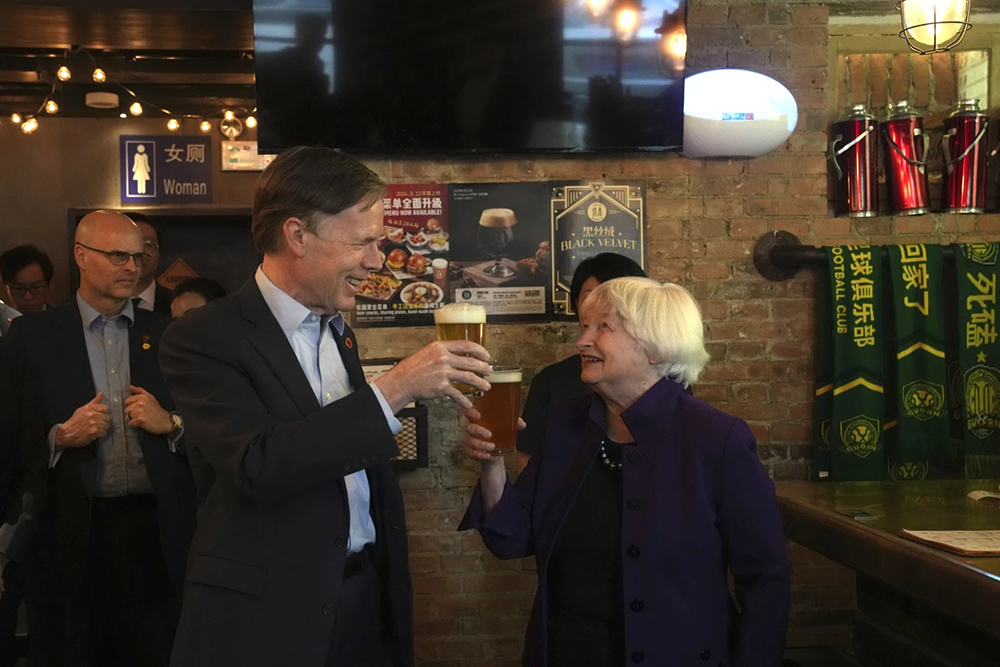|
Getting your Trinity Audio player ready...
|
By: Fatima Hussein
U.S. Treasury Secretary Janet Yellen and her team are leaving China and returning to Washington after trying to tackle the major questions of the day between the countries. Here’s a look at what she tried to accomplish, what was achieved, and where things stand for the world’s two largest economies:
UNFAIR TRADE PRACTICES
Yellen said she wanted to go into the U.S.-China talks to address a major Biden administration complaint that Beijing’s economic model and trade practices put American companies and workers at an unfair competitive disadvantage by producing highly subsidized solar products, electric vehicles and lithium-ion batteries at a loss, dominating the global market.
Chinese government subsidies and other policy support have encouraged solar panel and EV makers in China to invest in factories, building far more production capacity than the domestic market can absorb. She calls this overcapacity.
Throughout the week of meetings, she talked about the risks that come from one nation maintaining nearly all production capacity in these industries, the threat it poses to other nations’ industries and how a massive rapid increase in exports from one country can have big impacts on the global economy.
Ultimately, the two sides agreed to hold “intensive exchanges” on more balanced economic growth, according to a U.S. statement issued after Yellen and Chinese Vice Premier He Lifeng held extended meetings over two days in the southern city of Guangzhou. It was not immediately clear when and where the talks would take place.
“It’s not going to be solved in an afternoon or a month, but I think they have heard that this is an important issue to us,” she said.
MONEY LAUNDERING AND RELATED CRIMES
After several rounds of meetings, the U.S. Treasury and the Chinese central bank agreed to work together to stop money laundering in their respective financial systems.
Nearly all the precursor chemicals that are needed to make the deadly substance fentanyl are coming from China into the U.S. The U.S. says exchanging information on money laundering related to fentanyl trafficking may help disrupt the flow of the precursor chemicals into Mexico and the U.S.
“Treasury is committed to using all of our tools, including international cooperation, to counter this threat,” Yellen said in a speech announcing the formation of the group.
The new cooperative between the U.S. and China will be part of the two nations’ economic working groups that were launched last September, and the first exchange will be held in the coming weeks.
TIKTOK
Efforts in the U.S. to ban social media app TikTok, owned by Chinese parent company ByteDance, were raised initially by the Chinese during U.S-China talks, a senior Treasury official told The Associated Press. The firm has in the past promoted a data security restructuring plan called “Project Texas” that it says sufficiently guards against national security concerns.
However, U.S. lawmakers have moved forward with efforts to either ban the app or force the Chinese firm to divest its interest in the company, which the White House has supported. In China this week, it was evident that there was little movement on the issue.
Yellen said at a news conference Monday that she supported the administration’s efforts to address national security issues that relate to sensitive personal data. “This is a legitimate concern,” she said.
(AP)





